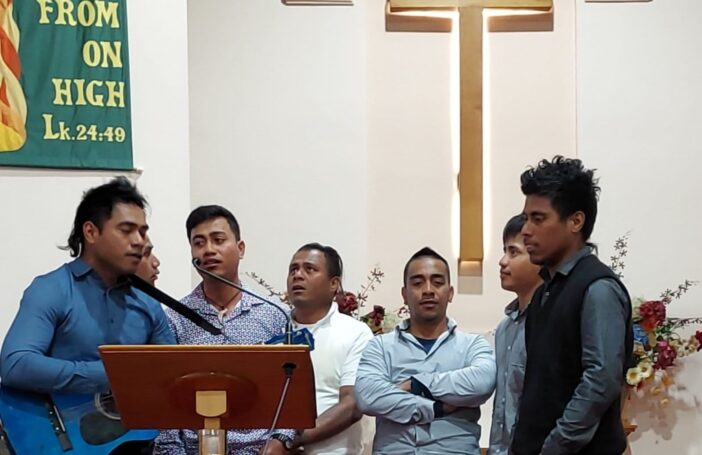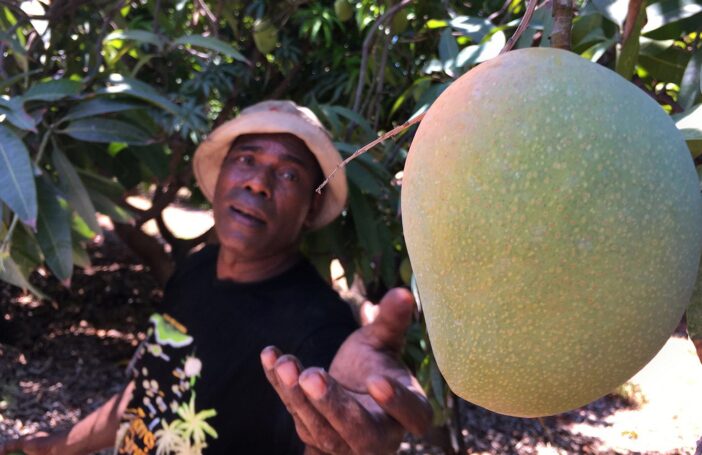Over the last two years, the Fair Work Ombudsman conducted an inquiry into Australia’s working holiday maker program. The results make for shocking reading. Underpayment and unpaid work are rife. Backpackers pay employers inducements to work in regional areas for access to additional visas. Government policies are creating a dependency on employers, leading to exploitative practices.
While individual transgressions have been reported in the past, the evidence has often been anecdotal and quickly attributed to a few bad apples. This report puts that notion to bed. A survey of over 4000 backpackers shows nearly one in three workers are paid cash while 14% paid an employer for their own job, undermining labour market norms for all Australians. This is systemic exploitation of migrant workers under a program without any regulatory oversight.
The FWO report found a series of tensions between “the public policy intention of the 417 visa program as a ‘cultural exchange’ and the use of the visa program as a source of labour.” This is because the working holiday maker program is primarily a low-skilled labour migration program, not a cultural exchange program as argued by the government. Evidence for this claim is substantial. The Northern Australia White Paper, special incentives for regional employers and the public debate over the backpacker tax clearly demonstrate how backpackers are framed as an employment solution, not a cultural practice.
Low-skilled labour migration is important for Australia, but it must not be exploitative. The backpacker scheme fails this test and the result is stark. One reason is that backpackers do not have the same incentives as Australian workers. Instead of prioritising market wages, migrants can have an alternative set of priorities, such as securing a future in Australia. The Productivity Commission recently found that, from 1991 to 2014, about one in five backpackers gained a permanent visa. For backpackers who want to stay, the first step is getting a second year visa. This means that an employer has to certify that they have worked for 88 days. No wonder backpacker are vulnerable: to being paid less than the minimum wage (more than a third), to having to pay for the certification (6%), to sexual harassment. As the report says “the work-for-visa system is broken.”
With more than 35,000-40,000 backpackers working in regional areas each year, the solution is not to ban backpackers. But clearly change is needed.
A regulated alternative
The Pacific Seasonal Worker Program (SWP) shows a different pathway to meet labour needs in regional Australia. The program is regulated. A set of rules enforced by the Department of Employment ensures a basic framework mitigates against exploitation. While these rules are not perfect, the rates of exploitation under the SWP are much lower than those of backpackers.
The program has grown each year since its inception in 2010 to just under 5000 visa grants in 2015-16, but this is a small number relative to the number of backpackers. The government could do much more to promote the Seasonal Worker Program, to reduce red tape, and to level the playing field between seasonal workers and backpackers. It makes no sense that employers have to do labour testing to hire Pacific islanders but not backpackers. Nor that employers have to be registered to hire seasonal workers but not backpackers.
95% of backpackers to Australia are from developed countries: the bilateral treaties governing the program mostly exclude poorer countries. In the United States, Canada and New Zealand, fruit picking is done by citizens from poor countries, not rich ones as in Australia. This makes no sense. A prosperous, stable Pacific is in Australia’s national interest. Labour mobility boosts household incomes, underpins consumption and investment, and builds relationships. The second-year backpacker visa funnels workers from rich countries into the one sector we allow Pacific islanders to work in: horticulture. The second-year visa should either be removed or generalised and given for return for 88 days of work in any sector.
Reducing the number of backpackers and increasing the number of Pacific seasonal workers should be a central policy goal for migration in Australia. As the Senate Standing Committee on Economics is currently considering the backpacker tax legislation, now is the right time to adjust policy settings. Instead of looking at the backpacker tax in isolation, a broader perspective seeking to level the playing field and ensure policy coherence would be good not only for our neighbours but also for our labour markets.
Professor Stephen Howes is Director of the Development Policy Centre. Henry Sherrell is a Research Officer at the Development Policy Centre.
This post is republished with permission from The Mandarin.






I have to say that I don’t believe that SWP is more secured and regulated.
http://www.weeklytimesnow.com.au/news/national/shocking-conditions-exposed-in-federal-governments-seasonal-worker-program/news-story/46a5db6adb9611b8db30a2a41689cc25
I was one of the quarter of million backpackers. What I believed is, not many people know the exploitation until four corner-Slaving away. The policy maker only ask one question: Why the backpackers come?and how much they have spent here. If they here for the money, then great! We can take more from them.(32.5% tax) Don’t care about the drastic working condition. Don’t care about their 24 hours per day long working hours. Or $2 dollars per hour poorly wages.
It’s a very ridiculous move of Tourism department, spent $10 million to promote the WHM program in England, Canada and Ireland. Because the shortage labour force is happening in primary industries, farm, meat or poultry processing plant. However, these industries they don’t even like to use white man, these young Caucasians are too smart to know their right. I have met a Canadian young WHV drive bus in Tasmania, no farmer willing to hire him. And many British gave up the second year, no way to collect 88 days, unless the $4 per hour picking strawberries job is worth or just use $500 to buy the second year.
It’s more ridiculous watching the political shows about the backpacker tax. I think when the politicians arguing about how much tax rate should be fare, why the applicants are dropping, should of thinking about Australian economy recession. How weakness and worthless the Australian dollars now compare to 5-6 years ago.
SWP is no longer referred to as Pacific Seasonal Worker Program. Additionally, referring to participants solely as ‘Pacific Islanders’ with the inclusion of Timor-Leste, which doesn’t self-identify as a PiC neither in terms of culture nor geographically speaking.
Other than this, I agree and support your proposed goal of “Reducing the number of backpackers and increasing the number of Pacific seasonal workers should be a central policy goal for migration in Australia”. I think broad reforms are due for both labour migration schemes. There are at present calls from the horticultural sector for parity in tax rates between the two schemes, I would meet this suggestion with a request for the government to remove the labour market testing requirement from the SWP as an effort toward achieving a parity in administrative burden between the two schemes. It would also be a shame to see the removal of superannuation from one scheme and not the other. If the government removes the requirement to pay super to backpackers, this only increases their relative attractiveness further reducing potential employer’s motivation to pursue approval to employ seasonal workers. If the government removes superannuation from both programs, the seasonal workers, who are often living in very poor conditions in their home country, will lose vital funds which assist them to improve their quality of life toward an acceptable level.
I think reforms which support a shift from reliance on unregulated backpacker labour to the SWP is unlikely to occur because for the most part, the Australian people and the present government preference the cultural exchange objectives espoused by the WHM visa over the development objectives inherent with the SWP.
Thanks Nicole. Fair points in your first para. On the second, I understand that the government is not abolishing super for backpackers but basically confiscating it via tax. On the third, I don’t think the Australian government prefers backpackers because of the cultural aspects, but because (a) employers prefer their flexibility and (b) they spend what they earn in Australia. But it is slowly changing, and the SWP is growing over time.
In an ideal world , superannuation collected from seasonal workers acts as a compulsory savings scheme uplifting the amount of cash that can be repatriated. The reality is that the process of getting it back is cumbersome and if workers do not receive assistance from an employer or agent it is often foregone. A better option is to facilitate payments into the national provident funds in home countries to assist with developing a buffer against financial shocks.
I think it’s really important to maintain a discussion about the inter relationship between how Australia deals with backpackers and how the SWP operates. Not least because it is deficiencies in ‘whole of government’ approaches that is one of the reasons that SWP lags behind RSE.
However if the premise is that SWP is preferable because it is regulated and therefore exploitation is reduced it appears incongruous to then argue that the way to make SWP more attractive (e.g. To people who have been exploiting backpackers) is by removing the regulation that apparently provides protection to Pacific island workers.
HI Tess, We’re not talking about removing the regulations, but making them less onerous, in sensible ways. See this blog for some very practical suggestions towards that end.
Hi Stephen, I agree that making them less onerous will be beneficial. I disagree that removing the requirement that they be registered is one of the more sensible options. If Australian government agencies including Fair Work Australia have limited resources, it is preferable that they know which employers they need to monitor by way of a registration process rather than trying to monitor everyone which creates the risk of widespread abuse as seen with the backpacker experience.
We’re not arguing against removing the requirement of registration under the SWP. I’m not sure it is sensible to say that all employers who hire backpackers should be registered. But at a minimum, labour-hire companies should all be licensed, regardless of whom they hire.